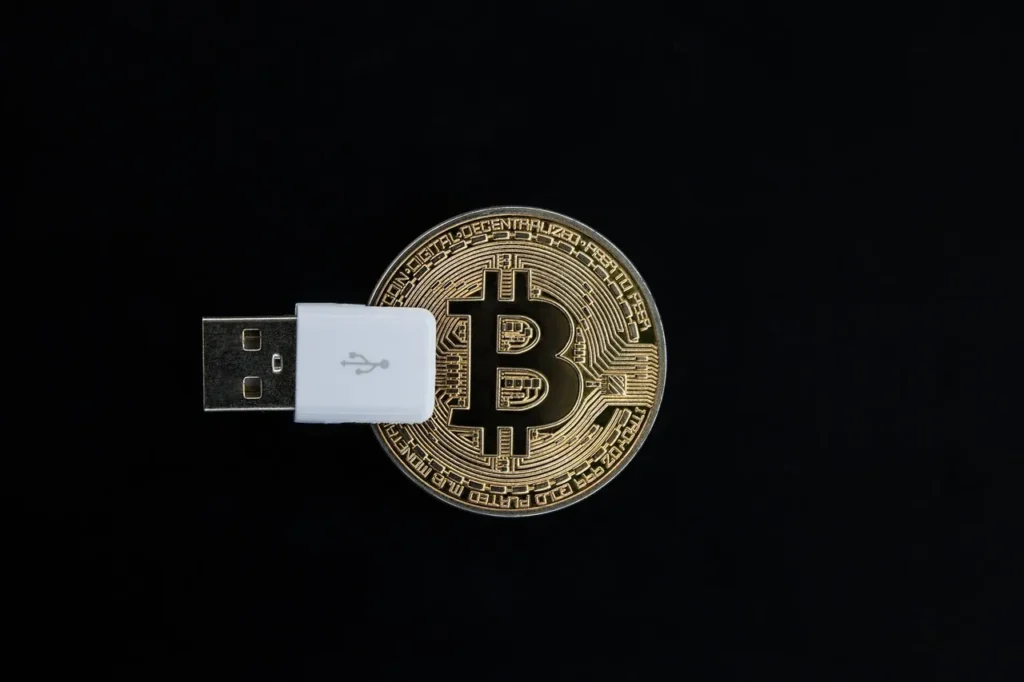Have you ever wondered about the different types of wallets available for storing your cryptocurrencies on cryptocurrency exchanges? From Bitcoin to various cryptocurrencies, there are numerous options to securely store your digital assets on the blockchain network.
Choosing the right wallet is crucial. As a crypto enthusiast, I have explored various cryptocurrency wallets and blockchain wallet options and learned the importance of finding the perfect fit for my needs.
Crypto wallets, also known as cryptocurrency wallets, come in different types and are designed to securely store and manage various digital currencies like Bitcoin and other coins. Each wallet has its own set of features and functionalities, all built on the underlying technology of blockchain.
From hardware wallets that offer offline storage for cryptocurrency to software wallets accessible via web interfaces, there are numerous options to consider for the secure storage of blockchain assets such as Bitcoin. These wallets come with robust security features. For cryptocurrency and bitcoin users seeking an extra layer of security, paper wallets provide an excellent offline storage solution on the blockchain. Some wallets even incorporate QR codes for seamless transactions.
By understanding the different types of cryptocurrency wallets and their unique characteristics in relation to coins and blockchain technology, you can make informed decisions about which one suits you best. Whether you’re a beginner or an experienced investor in the crypto market, this knowledge will empower you to protect your digital assets effectively using cryptocurrency wallets. Whether you prefer a software wallet or web wallets, understanding how to secure your crypto assets is crucial.
Importance of Crypto Wallets: Do I Need One?
Why Having a Crypto Wallet is Essential
In the world of cryptocurrency, having a blockchain wallet is not just a luxury; it’s a necessity for securely storing Bitcoin and other cryptocurrencies. Whether you’re trading on an exchange or holding your digital assets, a crypto wallet is essential. Blockchain wallets provide secure storage and easy access to your cryptocurrencies. However, it’s important to consider the pros and cons before diving in.
Protecting Your Digital Assets from Theft and Hacking Attempts

One of the primary reasons to own blockchain wallets is to keep your cryptocurrency and Bitcoin safe from theft and hacking attempts using an app. Unlike traditional bank accounts or email accounts, cryptocurrency wallets provide an extra layer of security in the blockchain.
This ensures the safety of your Bitcoin and protects against unauthorized access. However, it is important to consider the pros and cons of using crypto wallets. With advanced encryption techniques and private keys, these cryptocurrency wallets ensure that only you have control over your funds in the blockchain.
Imagine if your email account got hacked and someone gained access to all your personal information, including your cryptocurrency wallet, digital wallet, software wallet, and cold wallet. Now think about the potential consequences if that happens with your blockchain wallets, paper wallets, digital wallets, or software wallet holdings.
By storing your cryptocurrency assets in a secure crypto wallet using blockchain technology, you significantly reduce the risk of unauthorized access and potential loss of Bitcoin. This is one of the pros of utilizing this type of storage for your digital assets.
Exploring Different Types of Crypto Wallets

Software, Hardware, and Paper Wallets: Understanding the Differences
There are several types of crypto wallets available in the market. Each type has its own unique features and limitations. Let’s dive into an exploration of these different types of crypto and understand their differences.
Software Wallets
These crypto wallets are digital applications that can be installed on your computer or mobile device. They provide a convenient way to access your cryptocurrencies anytime, anywhere. Software wallets, also known as crypto wallets, are further categorized into web-based, desktop, and mobile wallets.
- Crypto web-based wallets operate through a web browser and securely store your private keys online. Crypto offers ease of use and accessibility but may have security concerns due to potential hacking risks.
- Desktop Wallets: Installed on your computer, crypto desktop wallets provide you with complete control over your private keys. Crypto wallets offer enhanced security as they are not always connected to the internet.
- Mobile Wallets: Designed for smartphones, mobile wallets allow you to manage your cryptocurrencies on the go. Crypto wallets offer convenience but may have limited storage capacity compared to other wallet types.
Hardware Crypto Wallets
If crypto security is your top priority, hardware wallets might be the right choice for you. These physical devices store your crypto private keys offline in a secure environment away from potential cyber threats. Hardware wallets come in various forms such as USB devices or specialized hardware built specifically for cryptocurrency storage.
Paper Wallets
As the name suggests, crypto paper wallets involve printing out your private keys onto a physical piece of paper. This method provides an offline storage option for crypto that is immune to cyber attacks since it doesn’t rely on any digital device or network connection. However, dealing with crypto requires careful handling as physical copies can be easily lost or damaged, it might go to the wrong hand and they will have access to all your coins.
Exploring Unique Features and Limitations
Now that we have covered the different types of crypto wallets, let’s take a closer look at their unique features and limitations.
- Software Wallets: These wallets offer convenience and accessibility, allowing you to manage your cryptocurrencies with ease. However, online threats such as phishing attacks or malware can compromise the security of crypto if proper measures are not in place. When dealing with crypto, it is crucial to choose reputable software wallet providers that prioritize security. Additionally, it is important to ensure that your devices have up-to-date antivirus software installed to protect against potential threats.
- Hardware Wallets for Crypto: With hardware wallets, your private keys remain offline, providing an extra layer of security against potential cyber threats in the world of crypto. Crypto transactions are designed to be tamper-proof and often require physical confirmation. However, hardware wallets can be costly compared to other wallet types and may have a learning curve for beginners in the crypto space.
- Paper Wallets for Crypto: Paper wallets offer the advantage of being completely offline, making them highly secure from digital attacks. These wallets are ideal for storing and protecting your crypto assets. They are also immune to hardware failures or technical glitches since they don’t rely on any electronic components, making them ideal for crypto applications, however using this wallet you will still need to make sure that the computer that your using to print this wallet doesnt contain spyware or any malware that might still has the capability to steal your crypto.
Understanding Public and Private Keys
Public Keys: Receiving Funds with Security
Public keys play a crucial role in cryptocurrency transactions, as they are used to receive funds securely. Think of them as your wallet’s “email address” that you share with others so they can send you cryptocurrencies. Just like you wouldn’t want to give your email password to anyone, it’s important to keep your crypto private key safe and secure.
When someone wants to send you cryptocurrency, they need your public key. This crypto key is derived from a complex mathematical algorithm and is unique to your crypto wallet. It acts as a crypto destination address where funds can be sent. You can freely share this public crypto key with others without worrying about compromising the security of your crypto wallet.
Private Keys: Ensuring Full Control and Security
While public keys allow you to receive funds, private keys ensure that you have full control over your crypto wallet. Your crypto private key is like the master key that grants access to all the crypto funds stored in your crypto wallet. Crypto should be kept confidential and protected at all costs.
Your private key is generated along with the public key during the creation of your crypto wallet. It is essentially a randomly generated string of characters that only you, as the user of crypto, should know. Losing or exposing your crypto private key could lead to unauthorized access and potential loss of funds.
To protect your crypto private key, consider storing it offline in a secure location such as a hardware wallet or writing it down on paper and keeping it in a safe place. To ensure the security of your crypto, refrain from sharing it with anyone or entering it into suspicious websites or applications that could compromise its security.
Cryptographic Principles: Enhancing Security Measures
Understanding the cryptographic principles behind public and private keys can provide additional insights into their importance for securing cryptocurrency transactions.
Cryptographic algorithms use complex mathematical operations to generate these pairs of keys. The relationship between the public and private crypto keys ensures that while information encrypted using one key can be decrypted using the other, it is computationally infeasible to derive the private crypto key from the public crypto key.
This cryptographic principle establishes a strong security foundation for crypto wallets. It means that even if someone knows your public key, they cannot reverse-engineer it to discover your private key and gain unauthorized access to your crypto funds.
Best Practices: Safeguarding Private Keys
To prevent unauthorized access and protect your crypto assets, it is crucial to follow the best practices for safeguarding your private keys:
- Consider using a crypto hardware wallet, which is a physical device designed specifically for storing private keys securely offline. These crypto devices provide an extra layer of protection against online threats.
- Regularly back up your crypto wallet’s private key or seed phrase to ensure you can restore access to your funds in case of loss or damage to your primary device. Store these backups in multiple secure locations.
- Beware of Crypto Phishing Attempts: Be cautious of crypto phishing attempts where malicious actors try to trick you into revealing your private key or other sensitive information through fake websites or emails.
Comparing Custodial and Noncustodial Wallets
The Main Difference: Custodial vs. Noncustodial Wallets
There are two main types of wallets for crypto: custodial wallets and noncustodial wallets. Understanding the differences between these two crypto options is crucial for anyone looking to securely store their digital assets. Let’s dive into the pros and cons of each type of crypto.
Custodial Wallets: Relying on Third-Party Services
Custodial wallets, as the name suggests, involve entrusting your crypto funds to a third-party service provider. Much like depositing money into a bank account, you hand over control of your crypto assets to the custodian. This means that the crypto custodian manages your crypto private keys and holds responsibility for safeguarding your crypto funds.
One of the primary advantages of custodial wallets in the crypto space is convenience. Users can rely on professional security measures implemented by trusted crypto companies with expertise in protecting digital assets. These security measures often include multi-factor authentication, encryption protocols, and regular security audits for crypto.
However, this convenience comes at a cost: trust. By using a custodial crypto wallet, you are placing your faith in the custodian’s ability to secure your funds effectively. If they fall victim to crypto hacking attempts or internal fraud, it could put your crypto assets at risk.
Another potential downside is limited control over transactions. With custodial wallets, crypto users must typically go through an approval process before executing any transaction involving their crypto funds. While this extra layer of security may be reassuring for some crypto users, it can also lead to delays or inconvenience when trying to access or move their crypto assets quickly.
Noncustodial Wallets: Complete Control Over Private Keys
Noncustodial crypto wallets offer an alternative approach where users retain full control over their crypto private keys and funds. These wallets provide a more decentralized solution that aligns with one of the fundamental principles behind cryptocurrencies – eliminating reliance on intermediaries.
With noncustodial wallets, crypto users are responsible for safeguarding their private keys. This means that the security of your crypto assets depends entirely on you. While this may seem daunting, it also provides a higher level of control and autonomy in the crypto space.
One significant advantage of noncustodial wallets in the crypto space is the freedom to transact without seeking approval from a custodian. Users can send and receive crypto funds at their discretion, without delays or restrictions imposed by a third party. This flexibility is particularly valuable for active crypto traders or individuals who require instant access to their crypto assets.
However, with great power comes great responsibility. Noncustodial wallets place the burden of security squarely on the user’s shoulders. If you lose your private keys or fall victim to a phishing attack, there is no central authority to recover your funds. It’s crucial to take appropriate security measures such as using hardware wallets, enabling two-factor authentication, and regularly backing up your wallet data.
Hot vs. Cold Wallets
Understanding the Difference
Hot wallets and cold wallets are two distinct types of crypto wallets used for storing cryptocurrencies. While both serve the purpose of keeping your digital assets secure, they have different characteristics and security implications.
Hot wallets, also known as online wallets, are connected to the internet. They can be accessed through various devices such as computers, smartphones, or tablets. Hot wallets provide convenient access to your funds, allowing you to make quick transactions whenever needed. Examples of hot wallet options include web-based wallets, desktop applications, and mobile apps.
On the other hand, cold wallets also referred to as offline wallets or cold storage, are not connected to the internet. They come in various forms such as hardware devices or even paper printouts. Cold wallets prioritize security by keeping your private keys offline and away from potential cyber threats.
Weighing Security Implications and Trade-offs
It’s essential to consider their security implications and trade-offs. Let’s dive deeper into each type:
Hot Wallets: Convenience at a Cost
Hot wallets offer convenience due to their easy accessibility from any device with an internet connection. You can quickly check your balance or initiate transactions on the go without much hassle. However, this convenience comes at a cost – increased susceptibility to hacking attempts.
Since hot wallets are connected to the internet, they are potentially vulnerable to cyber-attacks. Hackers could exploit vulnerabilities in software or target individual users with phishing attacks in an attempt to gain unauthorized access and steal funds.
To mitigate these risks when using a hot wallet:
- Regularly update your wallet software: Developers often release updates that address security vulnerabilities.
- Enable two-factor authentication (2FA): Adding an extra layer of protection with 2FA helps prevent unauthorized access.
- Use reputable wallet providers: Stick with well-established providers who have a proven track record of security.
Cold Wallets: Enhanced Security Offline
Cold wallets prioritize security by keeping your private keys offline, away from potential online threats. By disconnecting from the internet, cold wallets significantly reduce the risk of hacking attempts. They offer enhanced protection against malware, phishing attacks, and other cyber threats that target online wallets.
There are different types of cold wallets available:
- Hardware Wallets: These physical devices store your private keys securely and can be connected to a computer when needed for transactions. Examples include Ledger Nano S and Trezor.
- Paper Wallets: Private keys are printed on paper and stored physically, making them immune to online attacks. However, it’s crucial to keep them in a safe place to avoid loss or damage.
- Brain Wallets: This type of wallet generates private keys based on a passphrase you create and remember. It is not stored digitally or physically anywhere but in your memory.
While cold wallets provide excellent security, they may lack the convenience offered by hot wallets.
Unveiling Hardware Wallets: How They Work
Exploring the functionality and benefits of hardware wallets in securing your cryptocurrencies.
Hardware wallets are a popular choice among cryptocurrency enthusiasts. These devices provide an extra layer of security by storing your private keys offline, away from potential online threats. Unlike software wallets that store keys on a computer or mobile device, hardware wallets keep your sensitive information isolated within a physical device, such as a USB drive.
Using a hardware wallet is simple and user-friendly. Once connected to a computer or mobile device, it presents a user interface that allows you to manage your crypto holdings conveniently. This interface enables you to view account balances, send and receive funds, and monitor transactions with ease.
Understanding how hardware wallets store private keys offline, protecting them from online threats.
The primary advantage of using a hardware wallet is its ability to store private keys offline. Private keys are the secret codes that grant access to your cryptocurrencies. By keeping these keys offline on the hardware wallet itself rather than exposing them to the internet, you significantly reduce the risk of unauthorized access or theft.
Hardware wallets use state-of-the-art encryption techniques to secure private keys. The encryption process converts sensitive information into an unreadable format, making it nearly impossible for hackers to decipher. Most hardware wallets require users to set up PIN codes as an additional layer of protection against unauthorized access.
Learning about the encryption and authentication mechanisms used by hardware wallets for added security.
Hardware wallets employ various encryption and authentication mechanisms to ensure maximum security for your crypto assets. One common method is known as “two-factor authentication” (2FA), which requires users to verify their identity through multiple means before accessing their funds.
Another crucial aspect of hardware wallet security is firmware verification. Firmware acts as the software that runs on the device’s internal processor and manages its operations. To prevent tampering or malicious attacks, hardware wallets use cryptographic signatures to verify the authenticity of firmware updates. This ensures that only authorized and secure software is running on the device.
Discovering why hardware wallets are considered one of the most secure options for storing digital assets.
Hardware wallets are widely regarded as one of the most secure options for storing cryptocurrencies due to their offline storage and robust security measures. By keeping private keys isolated from internet-connected devices, they effectively mitigate the risk of online attacks, such as phishing attempts or malware infections.
Furthermore, even if a hardware wallet is lost or stolen, it typically requires a PIN code or passphrase to access the funds stored within it. This additional layer of security provides peace of mind knowing that your digital assets remain protected even in physical theft scenarios.
Overview and Comparison of the Best Crypto Wallets
Top List: A Glimpse into the World of Crypto Wallets
- Ledger Nano X
- Trezor Model T
- MetaMask
- Exodus Wallet
- Coinbase Wallet
Security: Keeping Your Crypto Safe and Sound
Security should be your top priority. After all, you want to ensure that your hard-earned digital assets are protected from any potential threats or vulnerabilities.
The Ledger Nano X is renowned for its robust security features. It uses a state-of-the-art secure element chip to store private keys offline, keeping them safe from hackers and malware attacks. It offers multi-factor authentication and enables users to set up a unique PIN code for an extra layer of protection.
Another popular option is the Trezor Model T, which also emphasizes top-notch security measures. This hardware wallet utilizes advanced cryptography techniques to safeguard your funds. It employs a passphrase feature that adds an additional layer of encryption to your private keys, making it even more challenging for unauthorized access.
If you prefer a software-based wallet with enhanced security features, MetaMask is an excellent choice. It not only allows you to manage multiple Ethereum-based tokens but also provides end-to-end encryption for secure transactions on decentralized applications (dApps). With MetaMask’s emphasis on user privacy and data protection, you can have peace of mind while engaging in the world of decentralized finance.
User-Friendliness: Simplifying the Crypto Experience
While security is crucial, user-friendliness plays a significant role in determining which crypto wallet suits your needs best. After all, navigating through complex interfaces can be frustrating and may hinder your overall experience.
The Exodus Wallet excels in providing an intuitive user interface that caters to both beginners and experienced users alike. Its sleek design and user-friendly features make it easy to manage your crypto assets. With support for over 100 cryptocurrencies, it offers a seamless experience for diversified portfolios.
Coinbase Wallet is another popular choice that prioritizes user-friendliness. It provides a simple and straightforward interface, making it ideal for newcomers to the crypto space. Coinbase Wallet integrates with the larger Coinbase ecosystem, allowing for easy transfers between your exchange account and wallet.
Supported Cryptocurrencies: Embracing Diversity in the Crypto World
When selecting a crypto wallet, it’s essential to consider the range of supported cryptocurrencies. Different wallets may have varying levels of compatibility with various digital assets, so it’s crucial to choose one that aligns with your investment portfolio.
The Ledger Nano X supports an extensive list of cryptocurrencies, including Bitcoin (BTC), Ethereum (ETH), Ripple (XRP), and many more. Its wide-ranging compatibility ensures that you can securely store and manage various digital assets without limitations.
On the other hand, MetaMask primarily focuses on Ethereum-based tokens.
Summary of Crypto Wallet Types and Recommendations
Now that you have a solid understanding of the different types of crypto wallets, it’s time to choose the right one for you. Remember, the type of wallet you select will depend on your specific needs and preferences. If you’re looking for convenience and accessibility, a hot wallet might be the way to go. On the other hand, if security is your top priority, a cold or hardware wallet may be more suitable.
Before making a decision, consider factors such as ease of use, security features, compatibility with your preferred cryptocurrencies, and whether you prefer custodial or noncustodial options. Take some time to research and compare different wallets in order to find the best fit for your needs.
So what are you waiting for? Start exploring the world of crypto wallets and take control of your digital assets today!
FAQs
What is the most secure type of crypto wallet?
The most secure type of crypto wallet is generally considered to be a hardware wallet. These physical devices store your private keys offline, providing an extra layer of protection against online threats such as hacking or phishing attacks.
Can I use multiple crypto wallets?
Yes, you can definitely use multiple crypto wallets. In fact, many people choose to diversify their holdings across different wallets for added security and convenience.
Are custodial wallets safe?
Custodial wallets can be safe if they are provided by reputable companies with strong security measures in place. However, it’s important to remember that when using a custodial wallet, you are essentially trusting a third party with your funds.
Can I store all types of cryptocurrencies in any wallet?
Not all wallets support every type of cryptocurrency. Before choosing a wallet, make sure it is compatible with the specific cryptocurrencies you intend to store.
What happens if I lose my crypto wallet?
If you lose access to your crypto wallet without having backed up your recovery phrase or private keys, you may permanently lose access to your funds. It’s crucial to keep backups of your wallet information in a safe and secure place.


